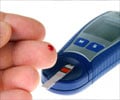A new study by researchers at Columbia University Medical Center (CUMC) has suggested that maintaining blood sugar levels, even in the absence of disease.
A new study by researchers at Columbia University Medical Center (CUMC) has suggested that maintaining blood sugar levels, even in the absence of disease, may be an important strategy for preserving cognitive health.
Senior moments are a normal part of aging. According to the new research, such lapses in memory could be blamed, at least in part, on rising blood glucose levels as we age.The findings suggest that exercising to improve blood sugar levels could be a way for some people to stave off the normal cognitive decline that comes with age.
"This is news even for people without diabetes since blood glucose levels tend to rise as we grow older. Whether through physical exercise, diet or drugs, our research suggests that improving glucose metabolism could help some of us avert the cognitive slide that occurs in many of us as we age," said lead author Scott A. Small, M.D., associate professor of neurology in the Sergievsky Center and in the Taub Institute for Research on Alzheimer’s Disease and the Aging Brain at Columbia University Medical Center.
Although it is widely known that the early stages of Alzheimer’s disease cause damage to the hippocampus, the area of the brain essential for memory and learning, studies have suggested that it is also vulnerable to normal aging.
Until now, the underlying causes of age-related hippocampal dysfunction have remained largely unknown.
Previously, using high-resolution brain imaging, Dr. Small and his colleagues discovered that decreasing brain function in one area of the hippocampus, called the dentate gyrus, is a main contributor of normal decline in memory as we age.
Advertisement
"This research used imaging in both human volunteers and in animal models to help us better understand the basic mechanisms behind hippocampal dysfunction in the aged," said Dr. Marcelle Morrison-Bogorad, NIA Division of Neuroscience director.
Advertisement
The researchers found that decreasing activity in the dentate gyrus only correlated with levels of blood glucose.
"Showing for the first time that blood glucose selectively targets the dentate gyrus is not only our most conclusive finding, but it is the most important for ''normal'' aging- that is hippocampal dysfunction that occurs in the absence of any disease states," said Dr. Small.
The study appears in the December issue of Annals of Neurology.
Source-ANI
SRM















